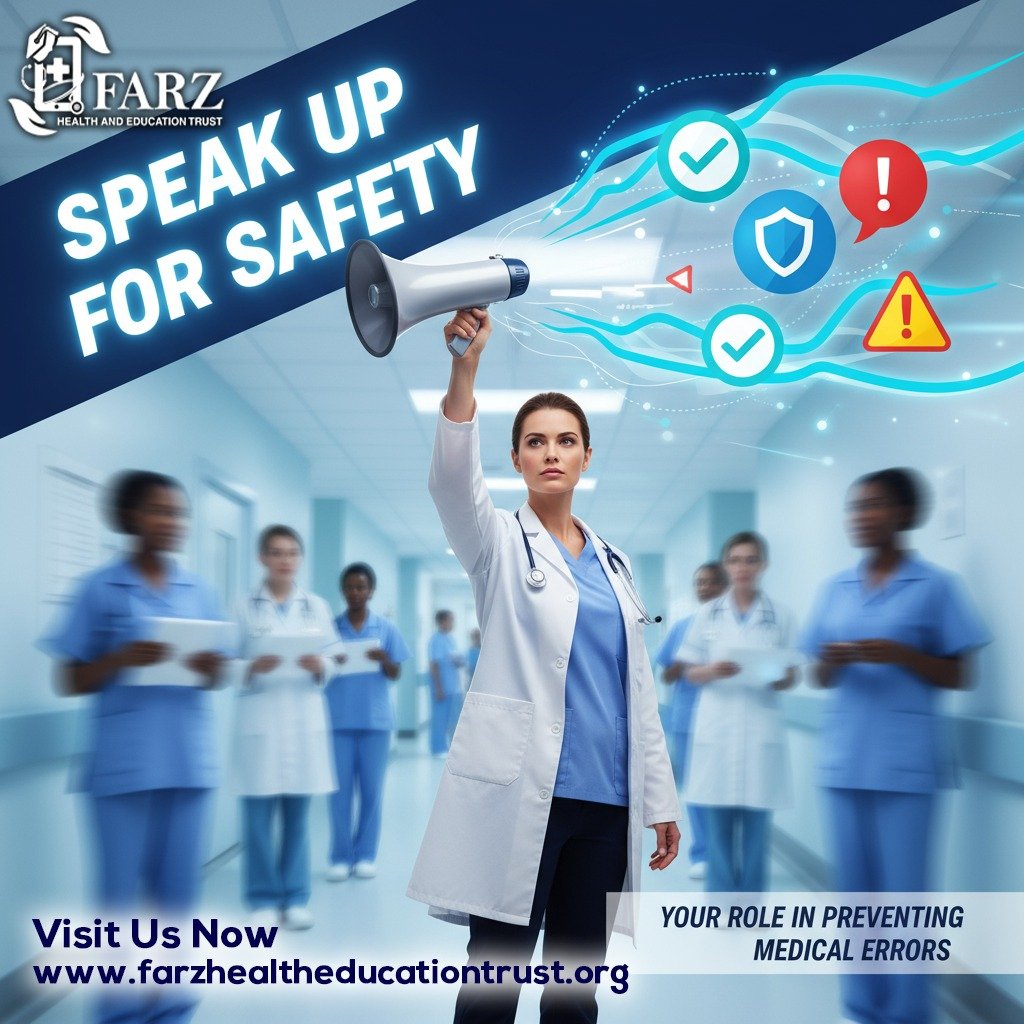
Introduction: Why Your Voice Matters:
Preventing medical errors is one of the biggest health challenges worldwide. Did you know that 1 in 10 patients suffers harm during medical care, with 3 million deaths annually linked to unsafe practices (WHO)? In India, about 5.2 million medical errors occur every year, making patient safety a national priority.
The solution isn’t only advanced technology like AI or remote monitoring. The human factor—your questions, your vigilance, your engagement—plays the most critical role. To prevent medical errors, patients must move from passive recipients to active partners in healthcare.
This guide gives you proven, practical steps to prevent medical errors and ensure safer care for yourself and others.
Understanding Medical Errors
The Global Problem
Medical errors rank among the top 10 causes of death and disability worldwide. These errors range from:
- Medication mistakes
- Wrong-patient incidents
- Diagnostic failures
- Surgical complications
- Hospital-acquired infections
👉 Many are avoidable with better communication and patient participation.
The Indian Context
A 2024 study in the Medico-Legal Journal confirmed 5.2 million annual medical errors in India. These preventable events strain families and the healthcare system alike.
India’s National Patient Safety Implementation Framework (NPSIF) 2018–2025 highlights patient involvement as central to safety (MoHFW).
Why Patients Must Help Prevent Medical Errors
Traditionally, healthcare treated patients as passive. But studies by the National Institutes of Health (NIH) show that engaged patients have fewer errors and better outcomes (NIH).
The shift is clear: patient safety is everyone’s responsibility. By speaking up, you prevent medical errors before they harm you.
The Speak Up Movement
The Joint Commission’s Speak Up™ program (Joint Commission) empowers patients to:
- Ask about medications
- Confirm procedures and risks
- Speak up about hand hygiene
- Double-check identification
- Raise concerns during care
Speaking up is not confrontation—it’s collaboration for safety.
3 Key Ways to Prevent Medical Errors
1. Medication Safety
Medication mistakes are the most frequent. Protect yourself by:
- Asking about drug names, dosages, and side effects
- Sharing allergies and past reactions
- Keeping a complete medication list
- Confirming pills before swallowing
👉 Example: On Quora, Tracey Wilson shared how an unnecessary pacemaker led to multiple complications. Asking more about the procedure might have changed her outcome.
2. Patient Identification
Always:
- State your full name and date of birth
- Check your ID band before treatment
- Correct staff if they confuse you with another patient
3. Hand Hygiene
Infections are preventable. Ensure:
- Doctors and nurses wash hands
- You sanitize regularly
- Visitors clean hands before entering
👉 Simple habits prevent medical errors linked to infections.
Healthcare in 2025: Technology + Human Vigilance
Artificial Intelligence
AI reduces risks by:
- Checking prescriptions for errors
- Flagging risky drug interactions
- Supporting diagnostics
But your vigilance remains critical. AI works best when combined with human input.
Remote Monitoring
Wearables and telehealth prevent medical errors through:
- Early warnings of complications
- Reduced hospital readmissions
- Real-time alerts for providers
Patient Engagement
Trends include:
- Shared decision-making
- Bedside shift reports
- Real-time patient feedback apps
👉 To prevent medical errors, you must be part of this digital transformation.
How to Speak Up Effectively
Before Your Appointment
- Write down symptoms, medications, and questions
- Bring a trusted companion
- Research your condition using reliable sources (Mayo Clinic)
During Care
- Ask: What are the risks? Are there alternatives?
- Speak up if something feels wrong
- Request a second opinion if unsure
After Care
- Review discharge instructions
- Monitor your recovery
- Report changes immediately
India’s Patient Safety Revolution
The NPSIF Framework 2018–2025 outlines:
- Standardized safety protocols
- Medication error reporting systems
- Safer surgical checklists
- Infection control programs
Though COVID-19 delayed progress, it also accelerated digital safety tools like electronic health records and barcoded medication tracking.
👉 These systems reduce risk, but patients must remain vigilant to prevent medical errors.
Overcoming Barriers to Speaking Up
- Fear of offending doctors → Use polite “I” statements
- Not knowing what to ask → Use checklists (AHRQ Questions to Ask Your Doctor)
- Cultural barriers in India → Bring family advocates
Respectful communication builds trust and safety.
Real Stories: Speaking Up Saves Lives
- Medication Error Prevented: Rajesh spotted an insulin dose error 10x too high. His question prevented a crisis.
- Unnecessary Surgery Avoided: Priya sought a second opinion, avoiding an operation she didn’t need.
- Diagnostic Error Corrected: Amit pushed for more tests, uncovering a serious illness missed earlier.
👉 Each story proves speaking up prevents medical errors and saves lives.
Conclusion: Your Voice Is the Strongest Safety Tool
As healthcare evolves, AI and technology are growing allies, but the most powerful safety measure is unchanged: your vigilance and your voice.
To prevent medical errors in 2025, be informed, stay engaged, and never hesitate to ask questions. You are not only protecting yourself but also helping create a safer healthcare system for everyone.
